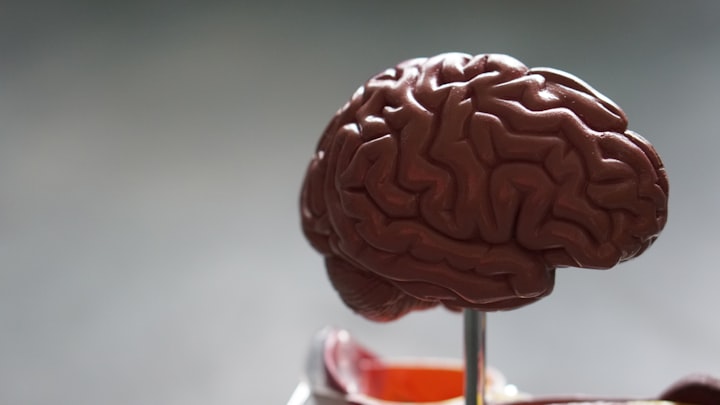10 Ways You May Be Slowly Damaging Your Brain
The brain and how to prevent damages to it

10 Ways You May Be Slowly Damaging Your Brain
The brain is a remarkable organ responsible for controlling our thoughts, emotions, and bodily functions. It is crucial to prioritize brain health to maintain cognitive function and overall well-being. However, certain habits and behaviors can have a negative impact on the brain, potentially leading to long-term damage. In this article, we will explore ten common practices that may be slowly damaging your brain and discuss why it is important to address them.
Poor Sleep Habits Such As Lack of quality sleep can harm brain health. Sleep deprivation disrupts important processes like memory consolidation, learning, and neural repair. Chronic sleep problems have been linked to an increased risk of cognitive decline, memory problems, mood disorders, and neurodegenerative diseases such as Alzheimer's.
Sedentary Lifestyle
Leading a sedentary lifestyle, with minimal physical activity, negatively affects brain health. Regular exercise promotes healthy blood flow and oxygenation to the brain, stimulating the growth of new neurons and supporting cognitive function. Prolonged sitting or inactivity may increase the risk of cognitive decline and impair memory and attention.
Unhealthy Diet
A poor diet lacking in essential nutrients can harm brain health. Consuming excessive amounts of processed foods high in refined sugars, unhealthy fats, and artificial additives can lead to inflammation and oxidative stress, damaging brain cells. A diet low in fruits, vegetables, whole grains, and healthy fats deprives the brain of vital nutrients necessary for optimal function.
Chronic Stress
Prolonged exposure to chronic stress can have detrimental effects on the brain. Stress hormones, such as cortisol, can damage brain cells and impair memory and cognitive abilities. Chronic stress has been linked to an increased risk of mental health disorders, including anxiety and depression, as well as neurodegenerative diseases.
Smoking and Substance Abuse
Smoking tobacco or using illicit substances can have severe consequences for brain health. Nicotine and drugs disrupt the delicate balance of neurotransmitters in the brain, affecting cognitive function, memory, and decision-making. Long-term substance abuse can lead to addiction and cause irreversible damage to brain structures and neural pathways.
Excessive Alcohol Consumption
Heavy and prolonged alcohol consumption can harm brain health. Alcohol is a neurotoxin that can damage brain cells, leading to cognitive impairment, memory loss, and an increased risk of developing alcohol-related brain disorders, such as Wernicke-Korsakoff syndrome. Binge drinking can cause acute brain damage, including alcohol-induced blackouts.
Chronic Neglect of Mental Stimulation
Failing to engage in mentally stimulating activities can accelerate cognitive decline. Mental stimulation, such as reading, puzzles, learning new skills, and social interaction, keeps the brain active and promotes the growth of new connections between brain cells. A lack of mental stimulation may contribute to cognitive decline and increase the risk of developing neurodegenerative diseases.
Neglecting Chronic Health Conditions
Ignoring chronic health conditions can have a negative impact on brain health. Conditions like diabetes, hypertension, and obesity are associated with an increased risk of cognitive decline and neurodegenerative diseases. These conditions can impair blood flow to the brain, cause inflammation, and increase the risk of stroke, all of which can damage brain cells.
Not Protecting Your Head
Failing to protect your head during physical activities or neglecting to wear appropriate safety gear increases the risk of traumatic brain injuries (TBIs). TBIs, such as concussions, can cause long-term damage to the brain, leading to cognitive impairments, memory problems, and changes in behavior or mood. It is crucial to prioritize head protection during sports, recreational activities, and occupational settings.
Isolation and Social Isolation
A lack of social interaction and isolation can negatively impact brain health. Social engagement and connection stimulate cognitive function, enhance mental well-being, and promote a sense of purpose. Prolonged social isolation and loneliness have been linked to increased cognitive decline, depression, and a higher risk of developing neurodegenerative diseases.
Maintaining a healthy brain is essential for overall well-being and quality of life. By being aware of and addressing these ten common practices that may be slowly damaging your brain, you can take proactive steps to protect and improve brain health. Prioritizing sleep, engaging in regular physical exercise, adopting a nutritious diet, managing stress effectively, avoiding harmful substances, stimulating your mind, attending to chronic health conditions, protecting your head, and nurturing social connections can all contribute to optimal brain function and promote a healthier and happier life.
About the Creator
Bridget Dyke
As a passionate writer of fiction and general articles, I invite you to embark on an extraordinary literary journey with me. With immersive stories and thought-provoking articles that will captivate your mind and touch your soul.






Comments
There are no comments for this story
Be the first to respond and start the conversation.